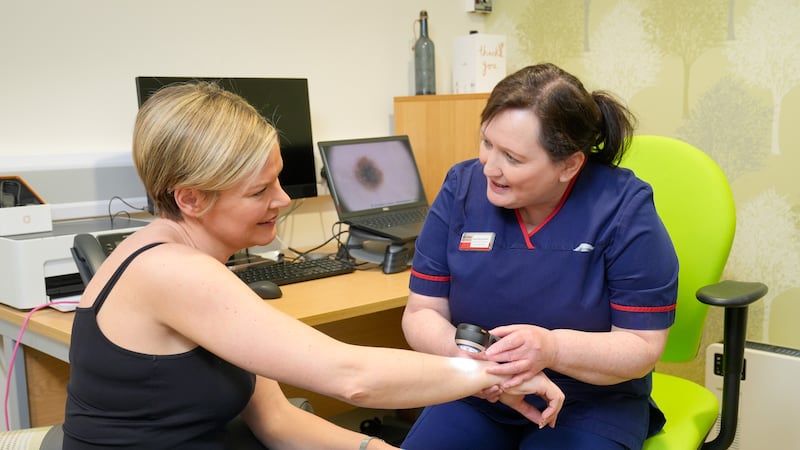More than 100 skin cancers have been detected in the first year of a new service aimed at tackling the condition as early as possible.
Over the last 12 months, the Action Cancer skin cancer detection service has carried out a total of 2,269 consultations.
These have included 1,381 virtual consultations and 888 skin lesion assessments.
Figures show there have been 131 red flag and urgent referrals sent to dermatology with the charity’s two specialist nurses - Iona McCormack and Roisin Hill - detecting more than 100 skin cancers.
One woman who used the service in the past year said it had “saved my life”.

Lyn Stevenson (45), a pharmacist from east Belfast, said: “I’d like to encourage anyone who is concerned about a mole or lesion on their skin, not to ignore it, but to go and get it checked out.
“If I hadn’t booked that appointment with Action Cancer, and just hoped it would go away, I am certain my story would have had a very different ending.”
Northern Ireland has one of the highest incidences of skin cancer in the UK, with non-melanoma the most common cancer and melanoma, which is associated with moles, the fifth.
The free service is for people concerned about a new or changing skin lesion.
Concerned members of the public, who meet the service eligibility criteria, are offered a virtual assessment with a skin cancer specialist nurse.
If further assessment is needed, a face-to-face appointment is offered on board the charity’s mobile unit, the Big Bus, which visits all five health trust areas across Northern Ireland.
Action Cancer then has the ability, using the Department of Health dermatology photo triage referral pathway, to refer the individual directly to secondary care for further assessment.
Ms McCormack, who heads up the Action Cancer service, said: “The majority of people in Northern Ireland have pale skin that tends to freckle and burn easily.
“Episodes of sun burning and tanning will increase your risk of skin cancer.
“Unfortunately, in Northern Ireland we have high usage of sunbeds and, with the introduction of low-cost airlines, trips abroad to Europe and beyond are more accessible.
“Since our official launch in April 2023, we have detected many skin cancers.
“However, we have also had the opportunity to reassure patients with benign skin lesions.
“Our aim is to detect skin cancer as early as possible and create an awareness of skin cancer prevention, and signs and symptoms of the most commonly occurring skin cancers.
“Be vigilant and check your skin for any changes and if you are concerned, please do get in touch with us.”
Our Skin Cancer Detection Service is one today🥳
— Action Cancer (@actioncancer) April 26, 2024
Specialist Nurses Iona & Roisin have carried out:
2269 Consultations:
➡1381 Virtual
➡ 88 Skin Lesion Assessments
131 red flag/urgent referrals sent to Dermatology via E Triage & over 100 skin cancers detected.#skin #cancer pic.twitter.com/EjXhxSWzUQ







